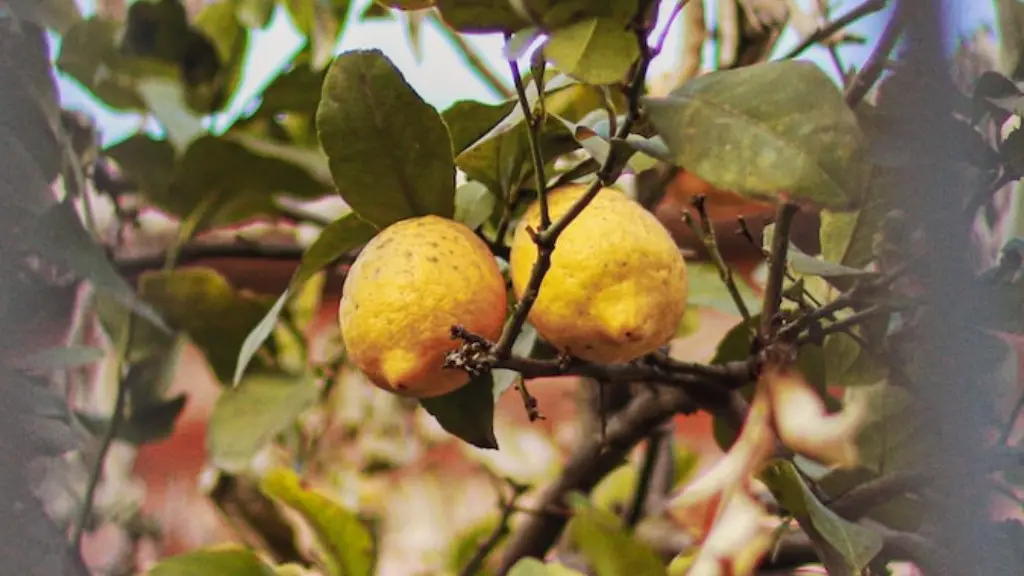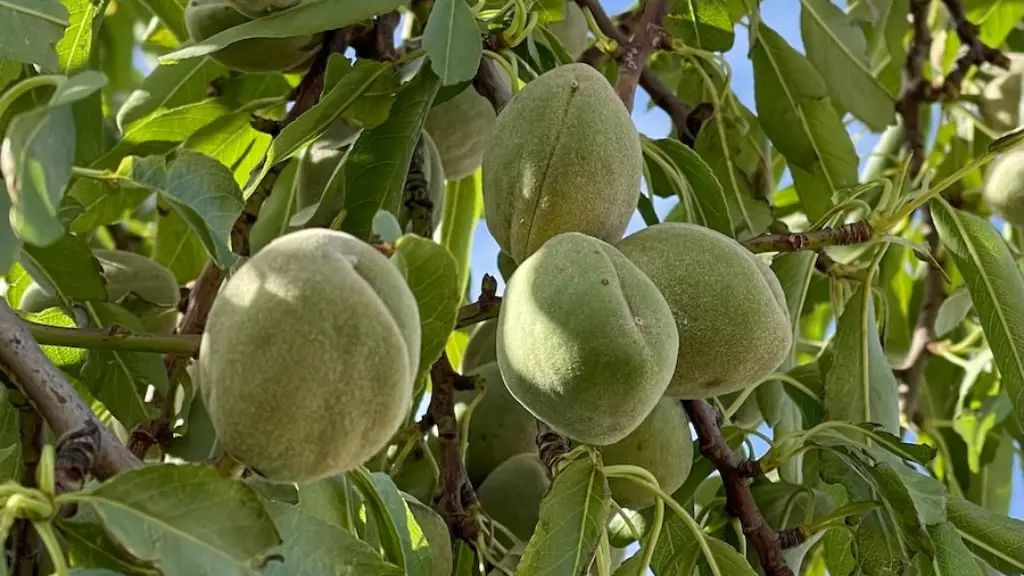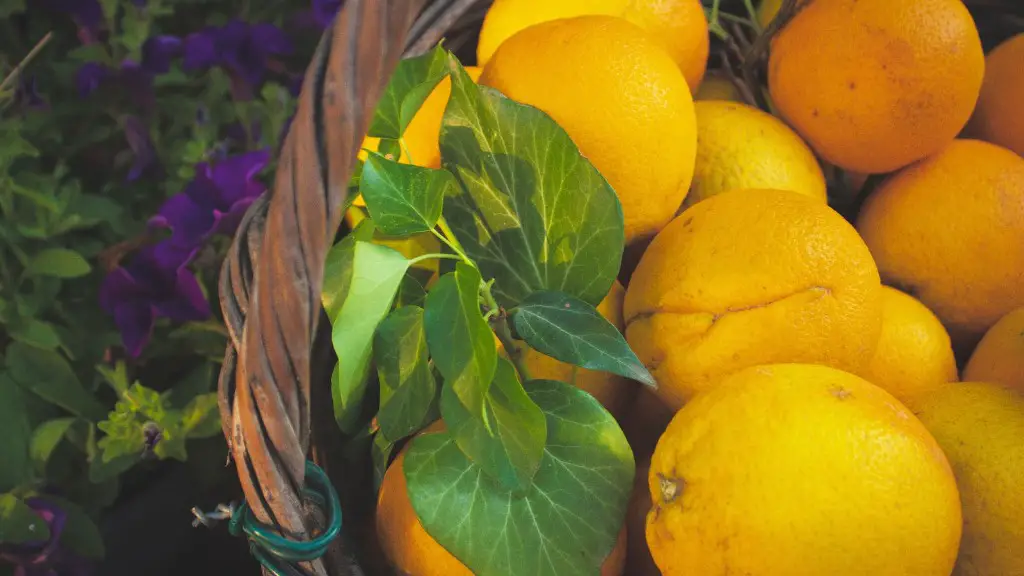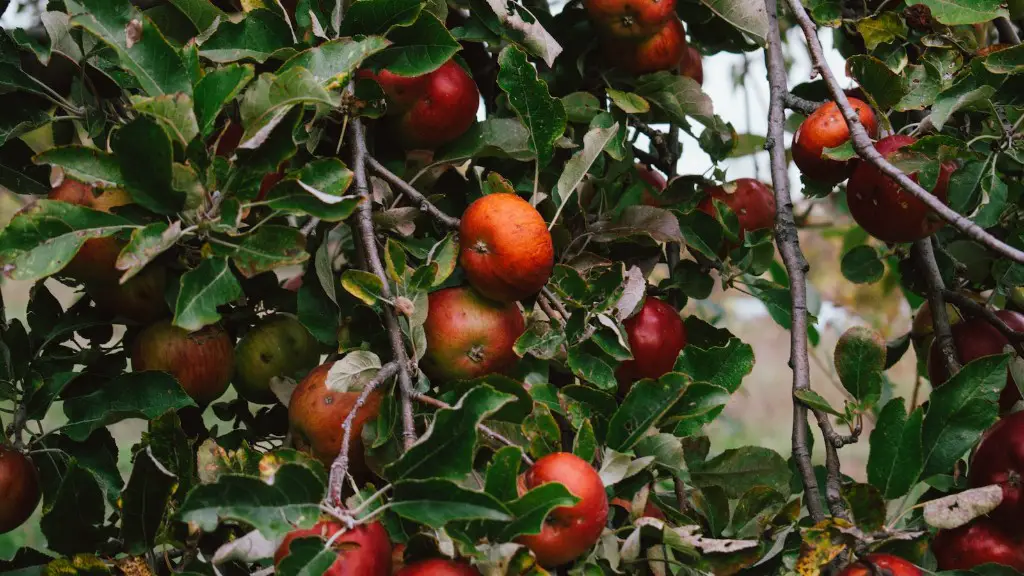Lemon trees are a citrus tree that is known for its ability to produce lemons. There are many reasons why a lemon tree may not be producing lemons. Some of the reasons could be due to the tree not getting enough sunlight, not being watered properly, or the tree could be too young to produce lemons.
There are many reasons why a lemon tree might not be producing lemons. Some possible reasons include:
-The tree is not getting enough sunlight. Lemon trees need at least 8 hours of direct sunlight per day in order to produce fruit.
-The tree is not getting enough water. Lemon trees need to be watered regularly, especially during the hot summer months.
-The tree is not getting enough nutrients. Lemon trees need to be fertilized every few months in order to produce fruit.
-The tree is too young. Lemon trees generally take 3-5 years to reach maturity and begin producing fruit.
-The tree is not healthy. If the tree is diseased or damaged, it may not be able to produce fruit.
Why are there no lemons on my tree?
A Eureka lemon tree might not be bearing fruit for a number of reasons, including poor watering practices, poor cultivation practices, incorrect temperature, insufficient light, lack of nutrients in the soil, disease or pest infestation, and/or a bad rootstock. Lemon trees thrive the best in USDA zones 9-11.
Lemons are self-pollinating, meaning they don’t need pollen from another lemon tree in order to bear fruit. However, you can help increase the yield of your indoor lemon tree by pollinating it yourself. To do this, simply take a soft brush and lightly brush the pollen from the male flowers onto the female flowers. You can also increase yields by pruning your lemon tree. Pruning helps to encourage new growth, which in turn helps to produce more fruit.
Why does my lemon tree flower but not produce fruit
If you have a lemon tree that is only one year old, it is unlikely that the tree will be able to bear fruit just yet. This is because most lemon trees need to grow for one to three years before they reach their full maturity. So if your tree is still in its juvenile phase, you may have to wait a little longer before it can produce lemons.
Potted lemon trees should be kept in cooler temperatures, around 60 degrees Fahrenheit, for at least a few hours every day in the winter and early spring. This is because lemon trees are subtropical plants, and they will not bloom if they are in constantly warm climates. Cooler temperatures encourage the plant to bloom.
How do I encourage my lemon tree to produce fruit?
Citrus trees are a great addition to any garden, and with these top tips, you can ensure that your tree will thrive and produce plenty of fruit. Just remember to give it plenty of sunshine, water, and drainage, and you’ll be well on your way to success.
This is an all-purpose pesticide that can be used on fruit, citrus, and palm trees. It is effective against a wide range of pests, including beetles, moths, and caterpillars.
Are coffee grounds good for lemon trees?
Lemon trees can benefit from the addition of coffee grounds to the soil, as the grounds contain nitrogen and calcium. The organic matter in the coffee grounds can also help to improve the tilth of the soil. However, it is important to only use coffee grounds that have been fully decomposed in a compost pile, as fresh grounds can actually be harmful to plants.
It is easy to pollinate lemon trees by hand. Simply touch each flower with the tip of the paint brush or feather to gather the pollen, then brush each stigmas with it in turn. Patience is needed as a tree may not flower (or set fruit) before it’s five years old.
What time of year do lemon trees produce fruit
Lemons are a citrus fruit that are grown on trees. The trees can be found in many locations around the world, but they are most commonly found in warm climates. Lemons do not have seasons in the way that we commonly think of them. Lemon trees begin to produce fruit somewhere between 4 months to one year after flowers blossom. This means that your lemon tree could be fruiting in any season. Typically, lemon trees will fruit in the winter.
A watering schedule is important to keeping your lemon trees healthy and happy. Depending on the rainfall in your area or the humidity indoors, a lemon tree should be watered once weekly or bi-weekly. If you’re not sure when to water your lemon trees, just check the top 2 inches of soil.
Why does my fruit tree have flowers but no fruit?
The prime suspect in most cases of a lack of fruit on tomato plants is a lack of pollination. This can happen for a number of reasons, the most common being a lack of insect activity. Bees and other pollinators are reluctant to go on the prowl for nectar when the weather is windy, rainy, or cold.
Down to Earth Organic Citrus Fertilizer is the best lemon tree fertilizer for good reason. It’s a granular fertilizer with an NPK ratio of 6-3-3 that is applied three to four times per year, which is great for lemon trees! It also contains secondary nutrients like calcium, sulfur, zinc, and iron. This fertilizer is good for lemon trees because it helps them to produce more fruit and also makes the fruit taste better.
Does Epsom salt help lemon trees
If your lemon tree leaves are turning yellow, it is likely due to a lack of magnesium in the soil. You can help correct this deficiency by mixing 30 grams of Epsom Salts per litre of water (approximately 2 tablespoons) and applying it to the tree.
It is essential to water a newly potted lemon tree every alternate day so that the root ball gets hydration. Once the plant is established, watering can be tapered to twice a week and then once a week.
How do I know if my lemon tree will bear fruit?
A healthy lemon tree will usually live for around 20 years, bearing fruit all throughout that time.
Lemon trees are susceptible to a variety of problems, including lesions on leaves, black moldy spots, fuzzy gray mold, and brown scabs. To prevent these problems, it is important to properly care for your lemon tree. water it regularly, fertilize it properly, and prune it regularly. If you see any of these problems developing, take action immediately to prevent further damage.
How do you increase lemon production
Once the tree is picked clean, prune back and shape the tree. Get rid of low-hanging branches to create a more balanced look.
With winter approaching, now is the time to start thinking about how to keep your indoor citrus tree happy. Here are a few tips:
1. Find a sunny spot. Citrus trees need at least eight hours a day of sunlight to thrive. If you can’t provide that with natural light, you may need to supplement with grow lights.
2. Increase the humidity level. Citrus trees love humid environments. You can increase the humidity around your tree by using a humidifier or placing the tree on a pebble tray.
3. Improve air circulation. Citrus trees need good air circulation to thrive. Make sure to position your tree so that it gets plenty of fresh air.
4. Give it plenty of water. Citrus trees need to be watered regularly. Be sure to check the soil before watering to make sure it is not already saturated.
5. Feed it. Citrus trees need to be fed monthly with a citrus fertilizer.
6. Get it back outdoors. As soon as the weather warms up, move your citrus tree back outdoors. It will enjoy being in its natural environment and getting plenty of fresh air and sunlight.
Final Words
There could be a number of reasons why your lemon tree is not producing lemons. It could be that the tree is not getting enough sunlight, or that it is not getting enough water. It could also be that the tree is not getting enough nutrients. If you are not sure what the problem is, you should consult with a professional.
There could be a number of reasons why your lemon tree is notproducing lemons. It could be that the tree is not getting enough sunlight, or it could be that the tree is not getting enough water. There could also be a problem with the soil, such as a lack of nutrients. If you are not sure why your lemon tree is not producing lemons, you should consult with a gardener or a lemon tree expert.




